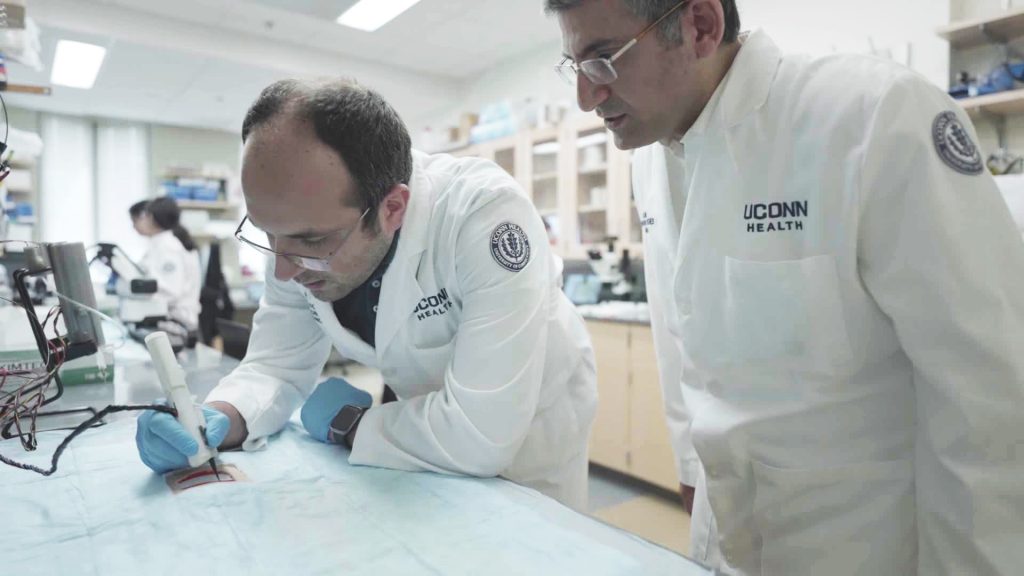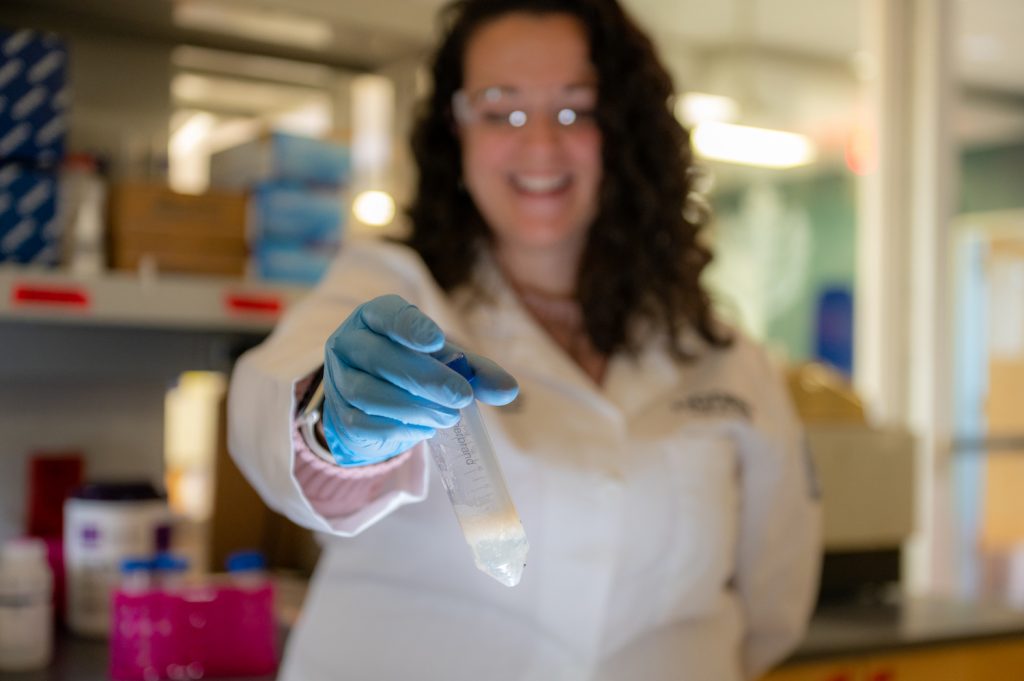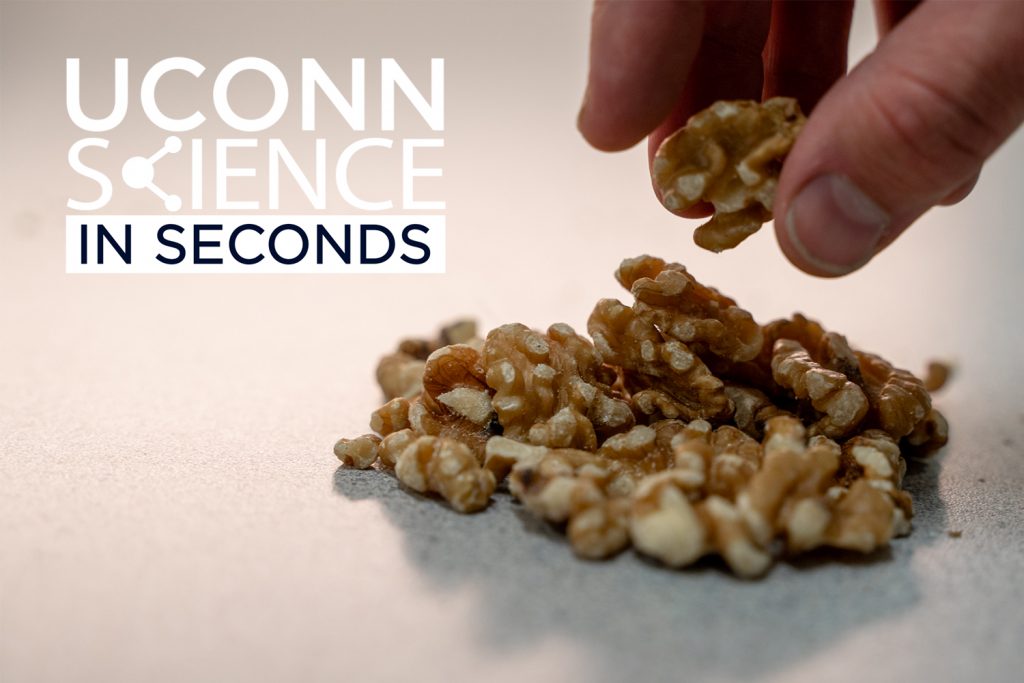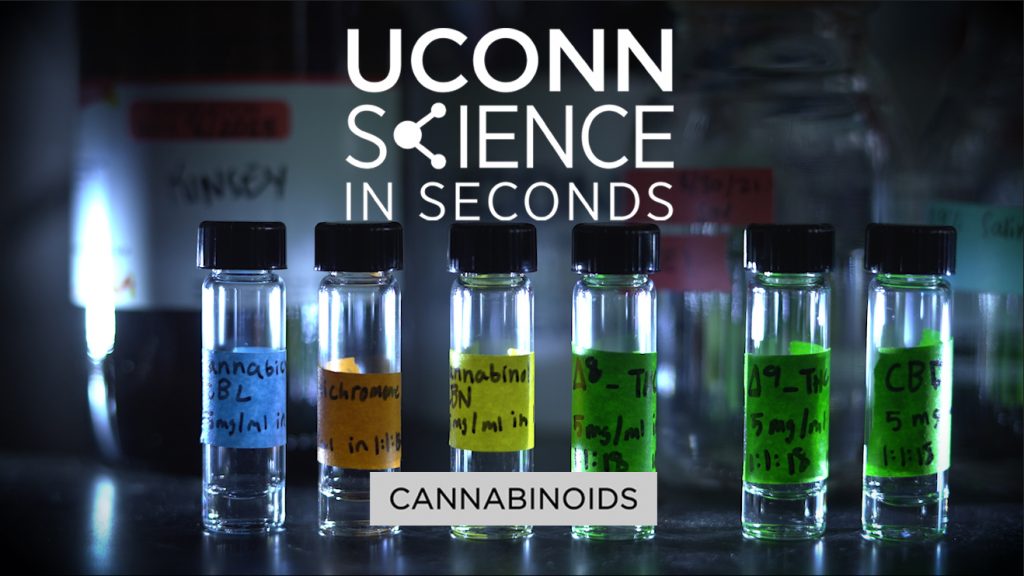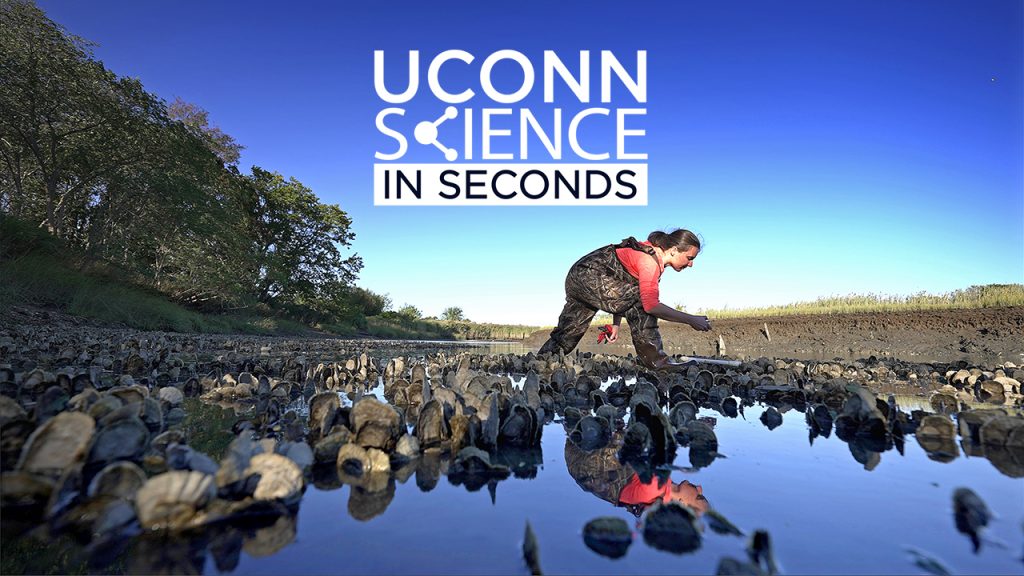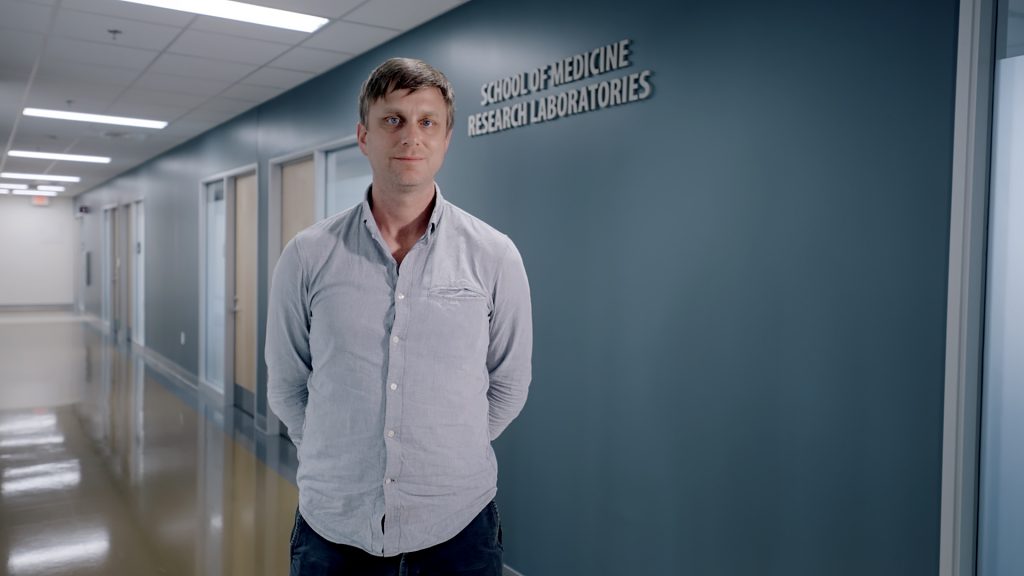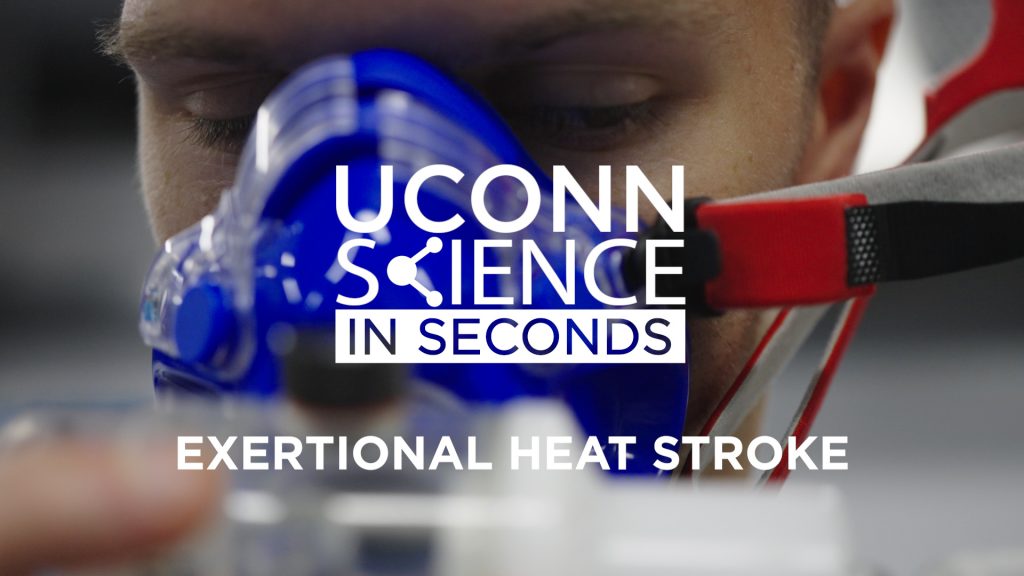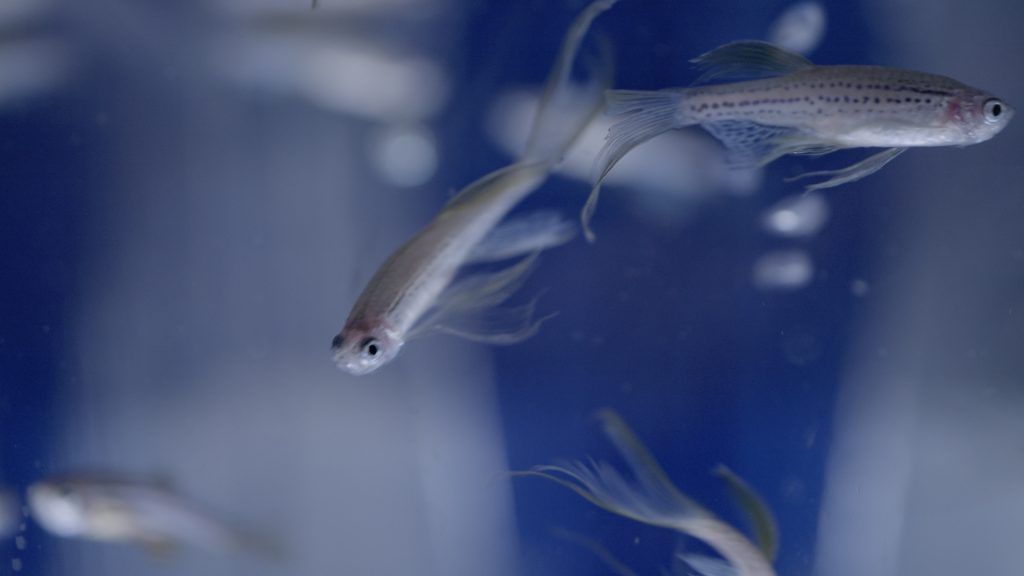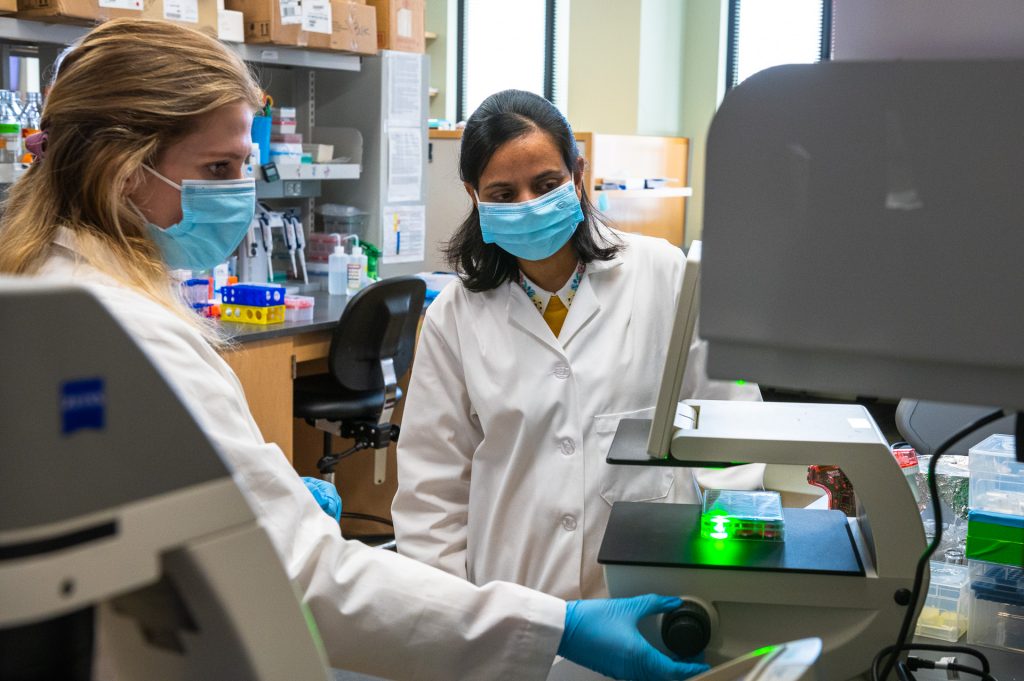
Series
Science in Seconds
Got a minute? Catch up on the latest research happening at UConn. In laboratories, in hospital rooms, and in the field, researchers are gathering data to answer critical questions facing our global community.
Science in Seconds: Handheld 3D Bioprinters to Treat Musculoskeletal Injuries
The new technology will simplify the process and greatly reduce surgical time
October 11, 2023 | Carolyn Pennington
Science in Seconds: Banking on Blood
UConn Health researchers are working to reinforce the nation’s blood supply
July 19, 2023 | Carolyn Pennington
Science In Seconds: The Wonders of Walnuts
UConn Health researchers are investigating the wonders of walnuts - how they improve colonic health and may help prevent cancer
March 21, 2023 | Carolyn Pennington
Science in Seconds: Cannabinoids
Cannabinoids are able to decrease our capacity to process pain in the brain while having less substance use potential than that of opioids
January 9, 2023 | Thomas Rettig and Ashley O'Connell
Science in Seconds: Oyster Restoration
UConn Marine Science researcher Zofia Baumann has her eyes set on restoring Connecticut’s oyster populations
November 7, 2022 | Thomas Rettig
Science in Seconds: Attention-Grabbing Brain Research
UConn Health neuroscientist Timothy Spellman is focusing his attention on “attention”
October 24, 2022 | Carolyn Pennington
Science in Seconds: Exertional Heat Stroke
What happens when the human body gets too hot? And what can you do if someone gets too hot? Douglas Casa, professor of kinesiology and chief executive officer of UConn’s Korey Stringer Institute explains.
July 25, 2022 | Angelina Reyes
Science In Seconds: What We Can Learn from Zebrafish
UConn Health's Jean-Denis Beaudoin is studying the earliest stages of zebrafish development to better understand how defects and diseases develop in humans
July 21, 2022 | Carolyn Pennington
Science in Seconds: Cryptocurrency
The existence of cryptocurrency may date to 2008, but many people still struggle to understand how it gets its value, why they should pay attention, and how to define it for the layman.
June 29, 2022 | Thomas Rettig
Science in Seconds: Our Immunity vs E. coli
A UConn Health immunology researcher is focusing on the interaction between our immune system and E. coli to better understand it and develop new treatments against this potentially deadly disease.
June 14, 2022 | Carolyn Pennington
